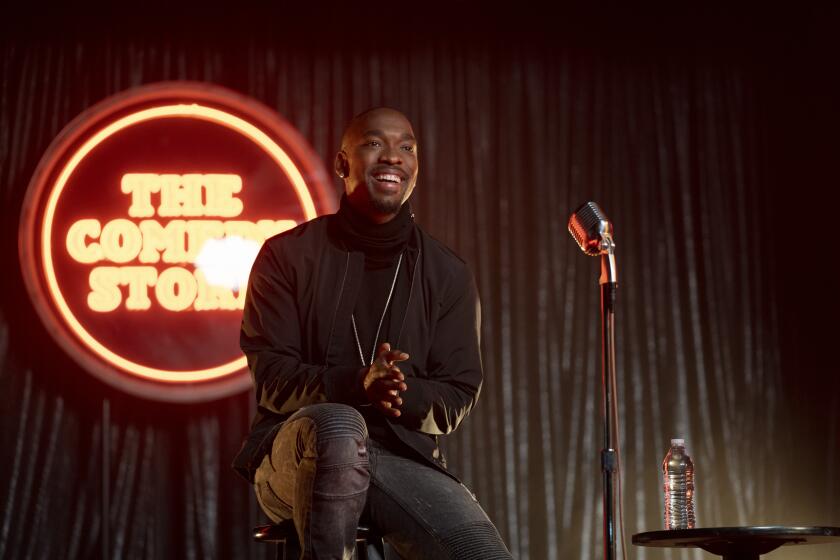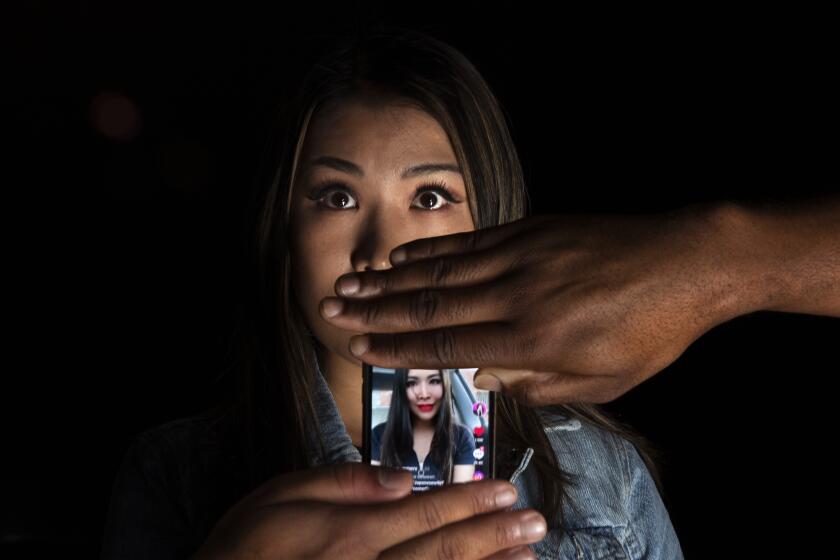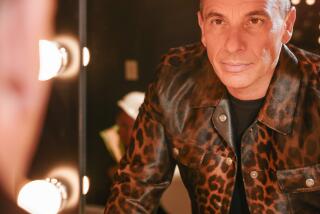‘You went in there to kill’: Stand-ups remember the urban comedy explosion of Phat Tuesdays
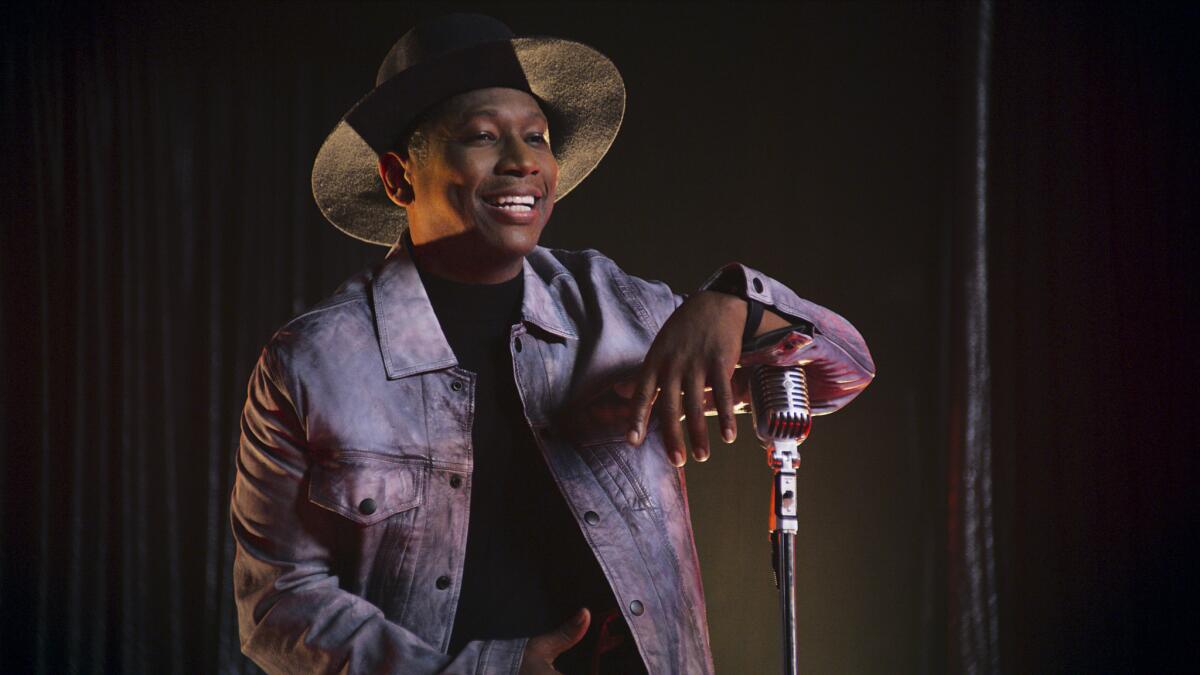
From 1995 to 2005, the comedy show “Phat Tuesdays” at the Comedy Store, created by comedian and actor Guy Torry, was a movement. In the midst of a predominately white comedy scene in L.A., Torry broke barriers creating opportunities for up-and-coming Black comedians with a showcase that electrified Hollywood — on a Tuesday of all days.
When he first moved from St. Louis, Mo., to Los Angeles to pursue stand-up, Torry said he couldn’t consider himself a real comedian until he got a spot on stage at the Comedy Store. When he finally made it there, he vowed to pave the way for other comedians of color. “So I thought, I’m going to create a night for comedians that need to showcase,” Torry said. “To have my own night and share the stage with other comedians was my only goal.”
For L.A.’s Black comics who performed on the show, the impact of that opportunity still resonates.
In the three-part docuseries, “Phat Tuesdays: The Era of Hip Hop Comedy,” premiering Friday on Prime Video, the comedy takeover gets a revived spotlight from director Reginald Hudlin, who takes a deep look at the launch of some of our favorite Black comics.
“When Phat Tuesdays came around, we had an audience that was all-Black or mixed as a group,” comedian Kym Whitley said. “Back then we were young and no one was checking for us! We just wanted to be funny and have fun. And we did. What we did back in the day, we’re nervous to do now. It was a different time.”
What started as a small weeknight gig in the Belly Room of the Store quickly boomed into a must-see comedy event in the Main Room. Any given week, it was probably the only place other than a Laker game where you could see rappers like Tupac, Ice Cube and Snoop Dogg sitting next to Hollywood royalty like Denzel Washington and Quincy Jones and NBA legend Magic Johnson. Late R&B legend Prince was also known to be spotted in the crowd.
“Forget the stage, people were coming by just to see who was in the audience,” Torry said. “You name it, they came.”
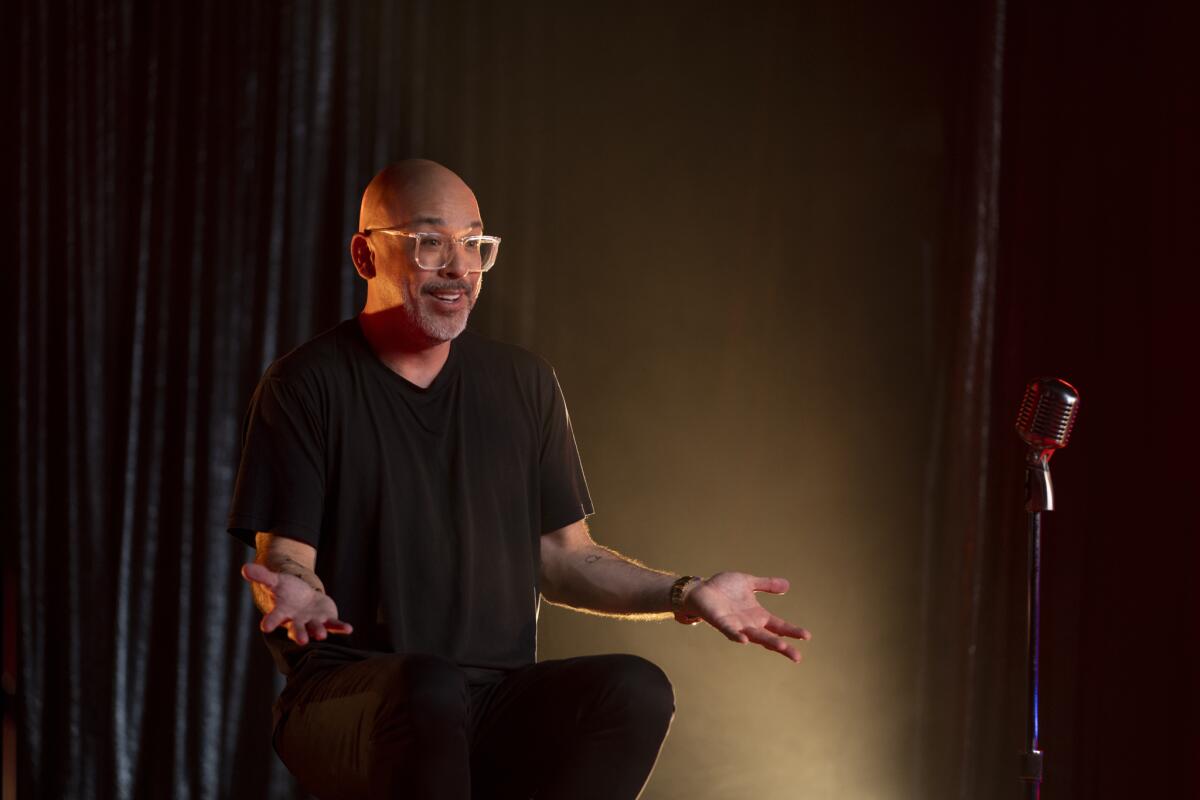
In that kind of environment, comics knew to bring their ace material. “You had to win fast,” said comedian Jo Koy, who got his first spot ever at the Store as a comic on Phat Tuesdays. “There was no room for creating new content, you had to go in with your winners because everyone was in there winning and everyone knocked it out of the park. They like to say it was a workout room, but really, you went in there to kill.”
Koy remembers a particularly big night when he saw the RZA from legendary hip-hop group Wu-Tang Clan sitting next to director Quentin Tarantino. “I was just like, what the f—! I was a tour guide for a dolphin habitat and here’s RZA and Quentin Tarantino watching me!”
Comedian Aries Spears said he had a brush with Tupac during one of his sets at the club. “I was doing a few Mike Tyson jokes and he wasn’t too pleased about it. He stood up and let me know about it in the middle of my set. At the end of the show, strangely enough, he came backstage and told me how great I was. It was kind of like an honor and a curse.”
Prior to Phat Tuesdays, there was a form of segregation going on in Hollywood with Black comedy showcases in the ‘90s. In Crenshaw at the Comedy Act Theater? Oh yeah, it was lit. In Hollywood proper? Not so much.
As shocking as it may seem that someone in L.A. entertainment hadn’t heard about what was going down at the Comedy Store on Tuesday nights, actor Kelsey Grammer, an executive producer of the Phat Tuesdays doc, was one of those people.
“Oddly enough, I never knew about Phat Tuesdays until we were presented this idea with Reggie and Guy,” said Grammer, who described himself as a “nose to the grindstone” actor who didn’t get out much back in the day. “But I did start to see the fruits of Phat Tuesdays through all of these extraordinary performances from wonderful comedians showing up in films. From the stories that Guy told, I’m quite upset I missed it!”
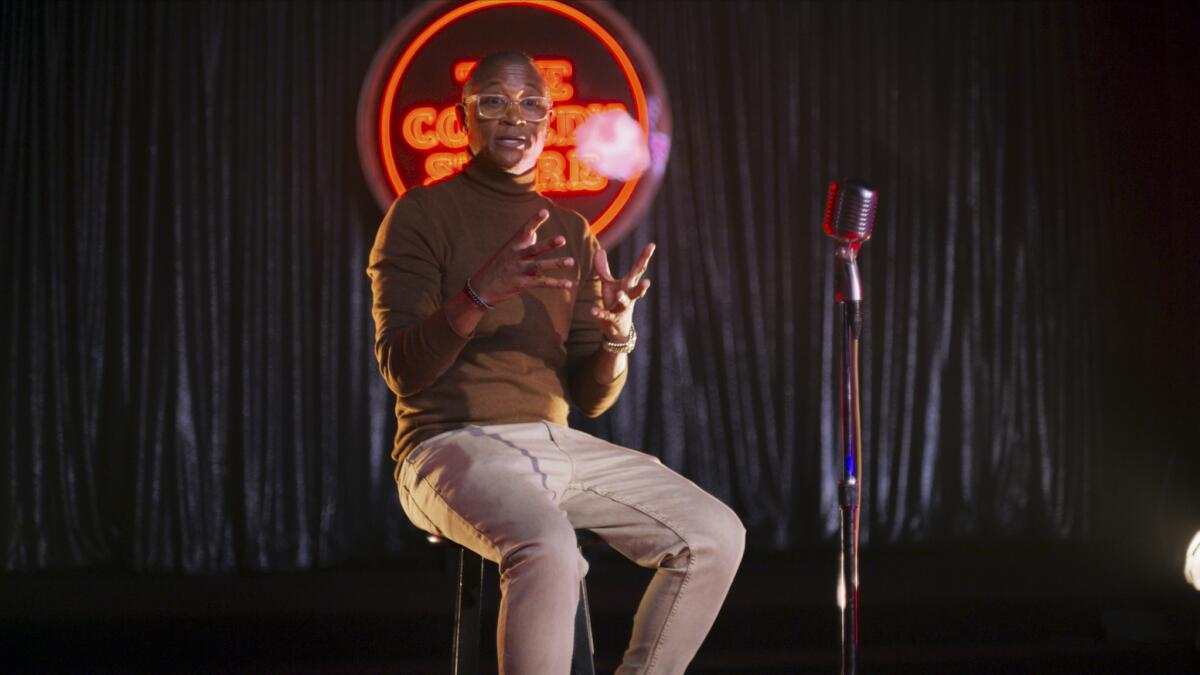
Under Torry’s direction, the ‘90s ushered in a new era of comedy, one with a more hip-hop flair, into mainstream Hollywood, and the magnetism of it all became undeniable.
“They gave me the Belly Room, which is like an incubator room, and then they gave me the worst night of the week — Tuesday! Someone brought to my attention that it actually was special because it started in February, so we were like, we’re going to do this Black history thing and see if we make it. And we didn’t look back,” Torry said.
In the wake of its success, Phat Tuesdays set the bar for clubs to try their own rendition of an urban comedy night.
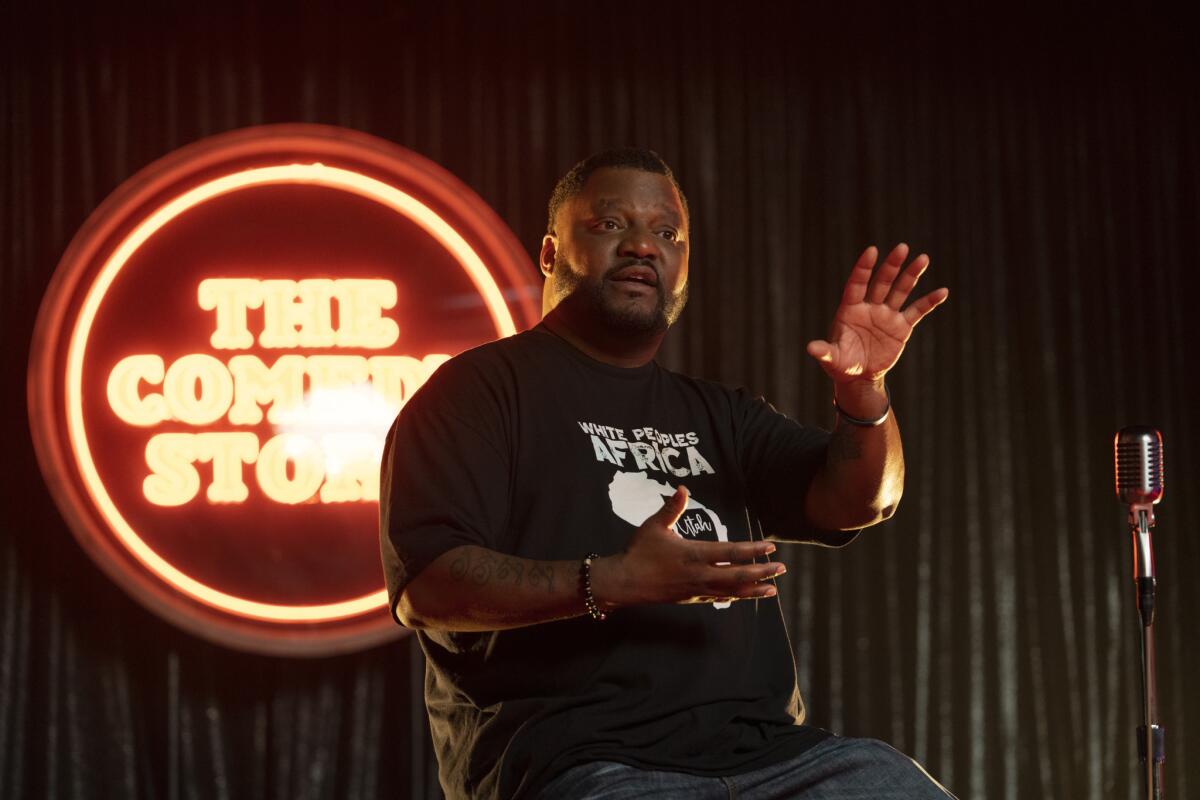
“Historically, I think Black people have always been the hot sauce to life,” Spears said. “We tend to turn everything up a notch and make everything a bit spicier. Shortly after [Phat Tuesdays came along], the other main clubs in Hollywood, the Improv and Laugh Factory, followed suit because no matter which club it was, the urban nights became the most profitable nights.”
After nine months of sold-out shows in the Belly Room, Guy and Phat Tuesdays made it to the coveted Main Room at the Comedy Store.
With its success in the Main Room, the Store’s owner, Mitzi Shore, wanted to move it there every week — though Torry had his doubts about that at first. He didn’t have the staff, the capacity or the money to pull it off as a young comic. “It was on Sunset Boulevard, which is a very busy street, it was Tuesday night and the parking was pricey. I originally fought off doing it for about six months and then thought, ‘You know what? I’m going to make this work.’”

When Torry dug his feet in, the party really kicked up. Fans formed lines down Sunset Boulevard just to get into the room to witness the lineup. Even among the greats, there were those who immediately commanded a different kind of attention every time they touched the mic.
“I remember I got called to do the show and went up there and did a great job. Then Dave Chappelle came in and captured the whole audience for the next hour and a half,” comedian Tommy Davidson said. “My comedy was a lot more physical, and I remember sitting there thinking, ‘I almost killed myself getting this going!’ I just sat there and marveled at him sitting there on a stool like, ‘Whoa, this guy is going to be huge.’ He didn’t even break a sweat! It was great to see.”
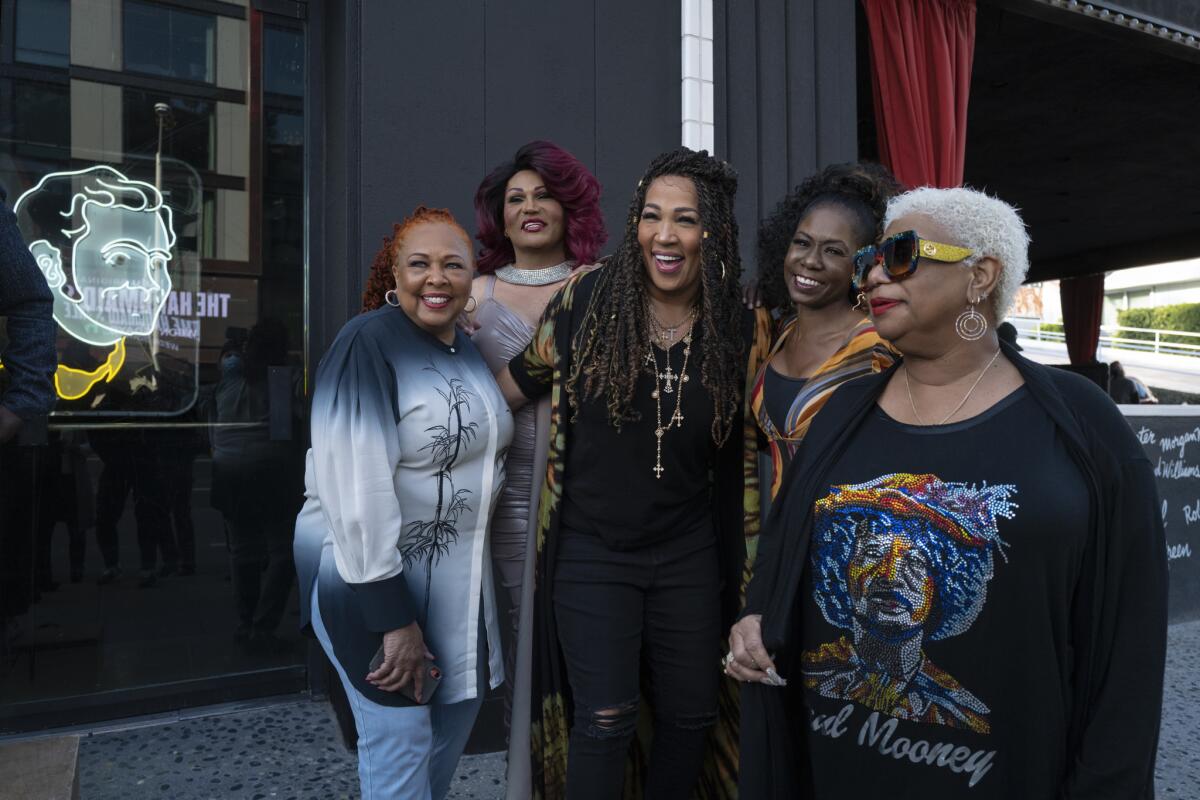
With local success for comics came national opportunities like Def Comedy Jam and Showtime at the Apollo, which helped solidify the careers of Phat Tuesdays’ best up-and-comers who still kept the club as part of their busy schedule.
“As we would say, you had to have a place to rehearse,” Whitley said.
And while Phat Tuesdays came to a close 10 years later, the impact it had on all races in the comedy community is unparalleled. The club night leveled up the comedy scene and its legacy is now immortalized, as it should be, on the outside wall of the Comedy Store, famously painted with the names of the comics who started it all.
“You see all of these names on the Comedy Store wall, but nobody made more famous people than that show,” Koy said. “A lot of people came out of that Main Room, but I tell you this, look at the list for Phat Tuesdays and your mouth will drop. It’s absolutely crazy.”
Looking back on the era of comedy that birthed many of stand-up’s biggest stars, Torry says it’s been a joy to relive it through the eyes of so many comics in the documentary who were there to watch Phat Tuesdays grow.
“I just wanted to give other comedians the opportunity that I had because I was already working,” Torry said. “I didn’t know back then I was doing anything historic. I didn’t even really realize that until I started working on this documentary. I was like, ‘Wow, this was bigger than I thought!’”
More to Read
The biggest entertainment stories
Get our big stories about Hollywood, film, television, music, arts, culture and more right in your inbox as soon as they publish.
You may occasionally receive promotional content from the Los Angeles Times.
